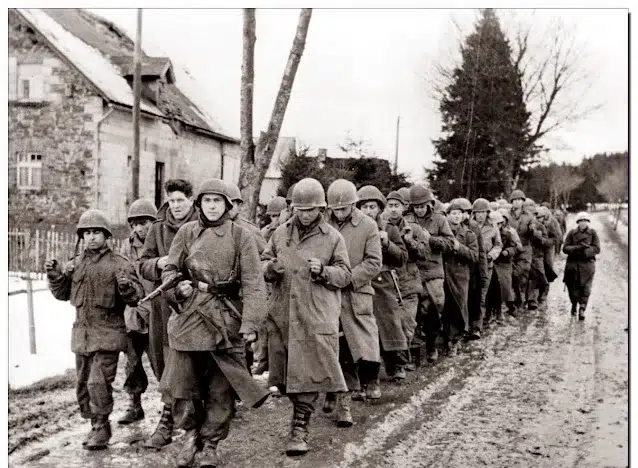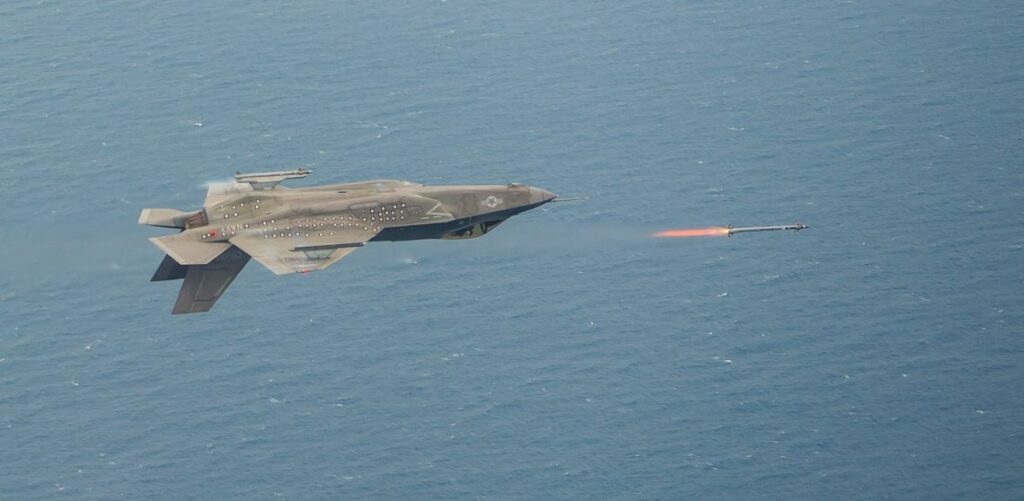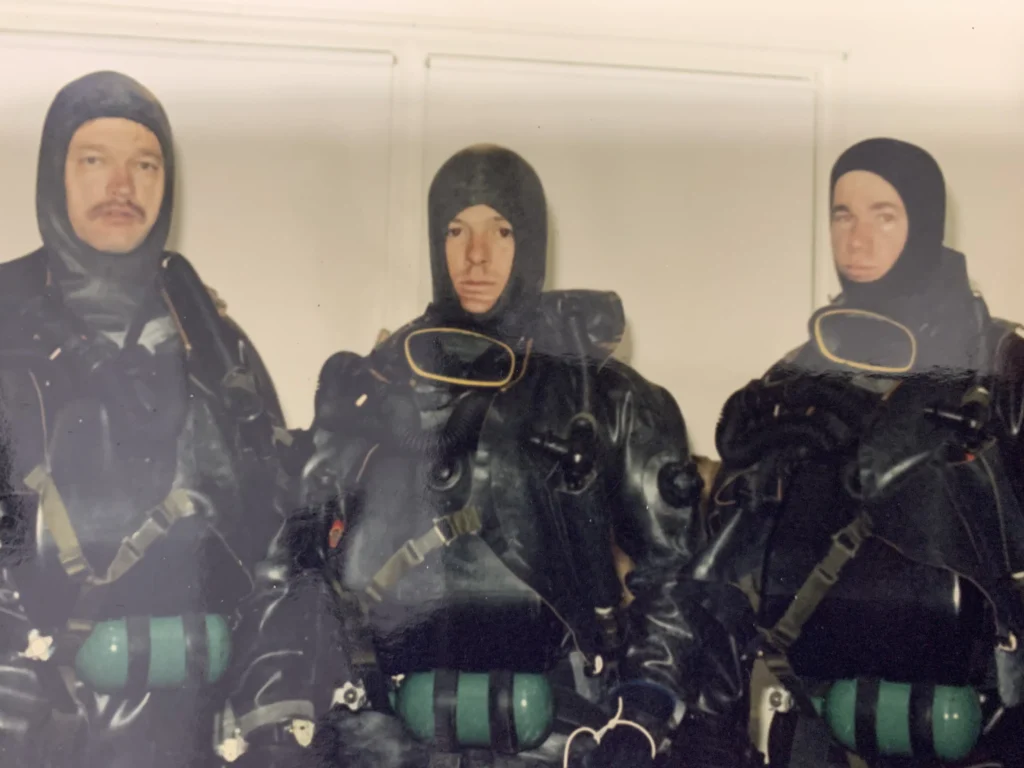Letters to Loretta: Captured by the Germans
- By Kaitlin Oster
Share This Article

Editor’s Note: Sandboxx News presents a World War II series by Kaitlin Oster on the power of hope, letters, and love in seeing us through the terrors and agony of war. You can read the other installments here and listen to Kaitlin’s radio interview about the series here, or visit her website here.
Harold drifted down faster and faster until he hit land in the village of Kehrenbach, about 15 miles southeast of Kassel. The plane was long gone, as was the remainder of his crew. He landed in a field, cut his chute, and began to look for cover in the trees of this small town. As he ran, he felt a sting in his arm and back. Harold looked down at the ripped sleeve of his bomber jacket and saw blood – definitely his. It was amazing he had made it out of that plane, he thought. The last thing he remembered was smoke and heat, and jumping out of that damn bomb bay into nothingness. He was in pain, but alive – at least he had that to look forward to.
Two little boys in the village saw the plane spiraling to its demise and noticed the red-headed man with the parachute making his descent onto their town. As Harold reached the tiny village of Kehrenbach, the boys ran to him and followed him on his search for help. They spoke German at the man with the name “Schwerdt” on his jacket, but he couldn’t understand much of what they were saying. They pointed at his bloodied arm; he imagined he looked worse for wear and hoped they would be kind to him. He stopped before the two small boys and smiled. They looked up in wonderment at this dirty, injured American man who happened to land in their home. One of the boys approached Harold, tugged on the hem of his jacket, and spoke at him in a pleading way. Harold didn’t understand much German, but he understood children.
Related: Letters to Loretta: Young admiration and peaceful days

His bomber jacket, although torn, still had intact pockets – one of which held chocolate. He reached into his jacket, broke up a bar, and handed pieces of the candy to the boys, who happily received them and continued to follow Harold as he searched for medical attention. Others in the town already gathered, drawn by the trail of smoke and crash. He smiled sheepishly and pointed to his arm and tried to draw some attention to his back. The sympathetic eyes of an old woman looked him over. The village’s Burgermeister and his wife arrived, approached the injured tech sergeant, and offered assistance. The sound of barking dogs drew Harold’s attention to an official-looking group of armed men. A German police officer led them. He approached with reports that an American plane went down and there may have been survivors.
“What are you doing with this American?” He un-holstered his firearm and aggressively waved it at the Burgermeister. The man was speaking German, but Harold knew he was the topic of conversation.
The Burgermeister stepped forward and stood his ground between the policeman and Harold. “He is injured. He needs help. We can provide him help.” Harold stood, in pain, barely catching what words were said. “Hilfe, hilfe, hilfe,” he heard. “Help, help, help.” He remembered his mother asking for help with chores, or his father asking for help with handy-work. He thought to himself at that moment how he could have used his parents’ help by speaking more German in the house back in Jamaica.
The policeman didn’t care that the soldier was injured. He was American. “He must come with me,” the policeman insisted. He edged closer to the Burgermeister and lifted his weapon. “If you refuse, I will not hesitate to shoot all of you.” The Burgermeister, without lowering his head, stepped aside. He knew there was nothing more he could do for this injured American. Harold twinged in pain as the policeman bound his hands behind his back.
“Schwerdt?” He gestured to Harold’s badge. “Do you speak German?” Harold shook his head no. The policeman mocked him. Surrounded by the villagers, the Burgermeister and his wife, Harold had never felt so alone. He was hauled off back through the town; the policeman was pleased with himself while his dog was snarling at Harold’s feet. He was thrown into a vehicle and shut into darkness. Where would he be taken? Will he ever get to write Loretta again?
Related: Watch this rare combat footage of B-17 bombers raiding Germany

September 17, 1943
Dear Loretta,
Received your letter of Sept. 2, and I certainly was glad to hear from you. I have never seen you, but from the many months association with Ha, it seems as though I have known you all my life.
Ha and Jack, Joe and I were together from morning until night, therefore you can imagine how overjoyed we were to find out that they are safe, even if prisoners of war.
I am sure that they will be treated well, and there is nothing to worry about. We are all living for the day when we can all meet again in the good old U.S.A.
In a way, I guess Ha and Joe are better off than Jack and I, as we must continue going out every day, expecting anything to happen, and hoping for the best.
We all feel that we are coming back, though, and now that we know the boys are safe, we will just have to try that much harder, as the reunion will be complete.
Well, Loretta, I have several other letters to write, and as you know, our time to ourselves is pretty limited, I guess I will close for now.
If you do find time, drop me a line any time, and I will answer first opportunity.
Sincerely Yours,
Ned
Read more from Sandboxx News
- The only foreign jet ever to lock onto the Blackbird (came to its rescue)
- Is the future African?
- If you’re a veteran, stop thinking that Veterans Day is all about you
- Another one bites the dust: Ukrainian long-range strikes take out another Russian warship
- These are 3 popular misconceptions about the Navy SEALs
Related Posts
Sandboxx News Merch
-

‘AirPower’ Classic Hoodie
$46.00 – $48.00 Select options This product has multiple variants. The options may be chosen on the product page -

‘Kinetic Diplomacy’ Bumper Sticker (Black)
$8.00 Add to cart -

‘Sandboxx News’ Trucker Cap
$27.00 Select options This product has multiple variants. The options may be chosen on the product page
Kaitlin Oster
Related to: Military History

Martha Gellhorn: The only woman present on D-Day

The gravity of the situation: How to fly a fighter upside down

Tu-95 Bear: The ‘old’ Russian bomber that can’t be replaced

Airborne adventures with a Green Beret Combat Dive Team
Sandboxx News
-

‘Sandboxx News’ Trucker Cap
$27.00 Select options This product has multiple variants. The options may be chosen on the product page -

‘AirPower’ Classic Hoodie
$46.00 – $48.00 Select options This product has multiple variants. The options may be chosen on the product page -

‘AirPower’ Golf Rope Hat
$31.00 Select options This product has multiple variants. The options may be chosen on the product page -

‘Sandboxx News’ Dad Hat
$27.00 Select options This product has multiple variants. The options may be chosen on the product page
